FREE Standard Shipping On All Orders $100 or More!*
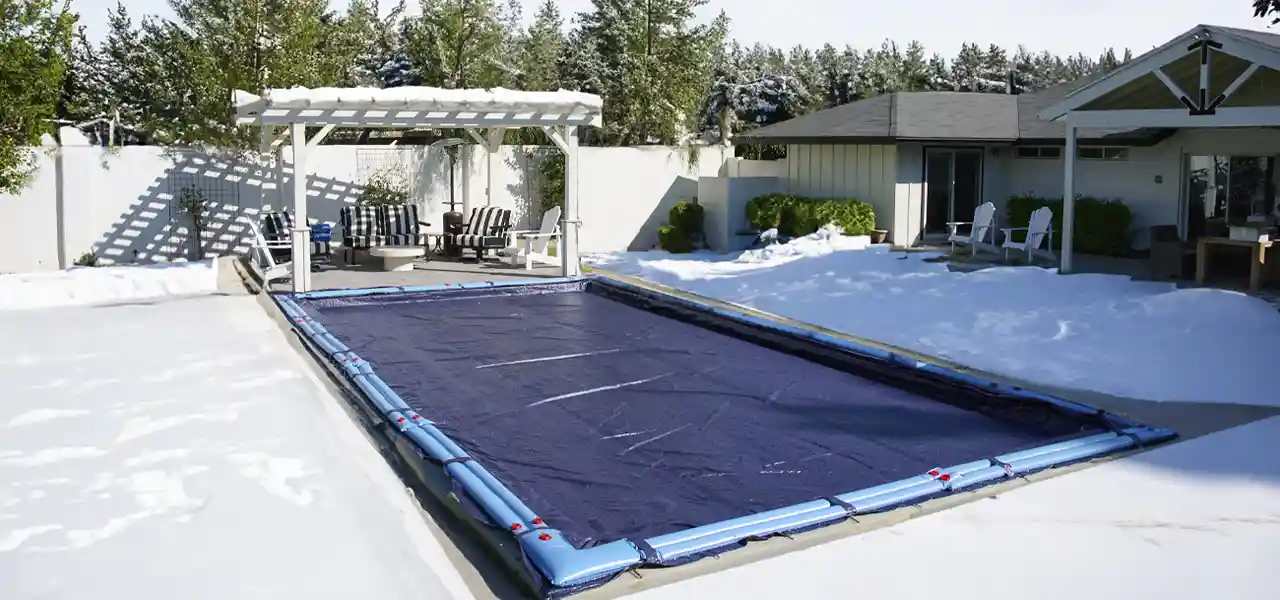
Winterized Pool Maintenance Guide
During winter, frozen temperatures and harsh weather conditions can wreak havoc on your pool if not properly cared for. In this comprehensive checklist, we'll cover everything you need to know about winterized pool maintenance. From balancing water chemistry to protecting your pool equipment, this guide will provide you with expert advice and best practices to ensure your pool survives the winter woes!
Winter Pool Maintenance 101
Taking great care of your pool during winter is key to ensuring a hassle-free opening come spring time. Neglecting your pool during the winter months can lead to numerous problems, from algae growth to equipment damage. And while caring for a winterized pool is much less involved than maintaining an open one, there are still a few important areas pool owners must tend to. This includes paying particular attention to water chemistry, the integrity of your pool cover, and your pool equipment. Let's dive in!
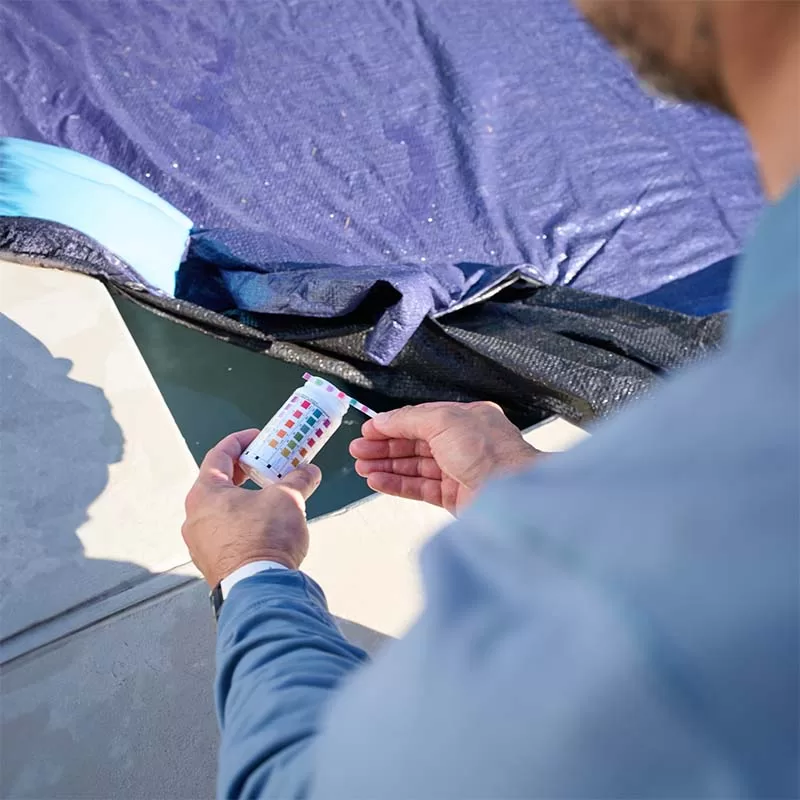
Maintain Water Chemistry
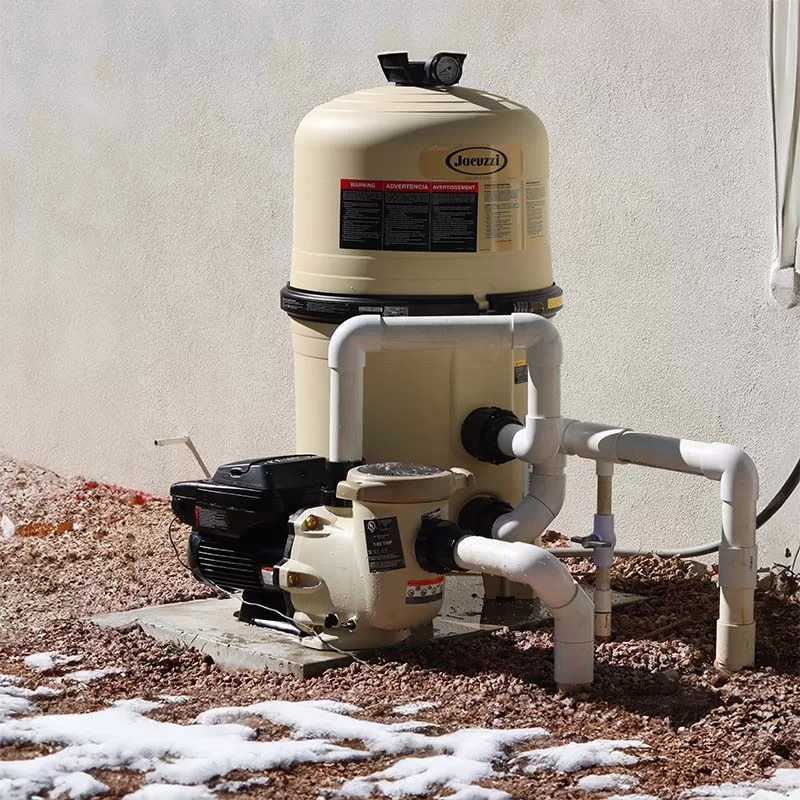
Monitor Equipment
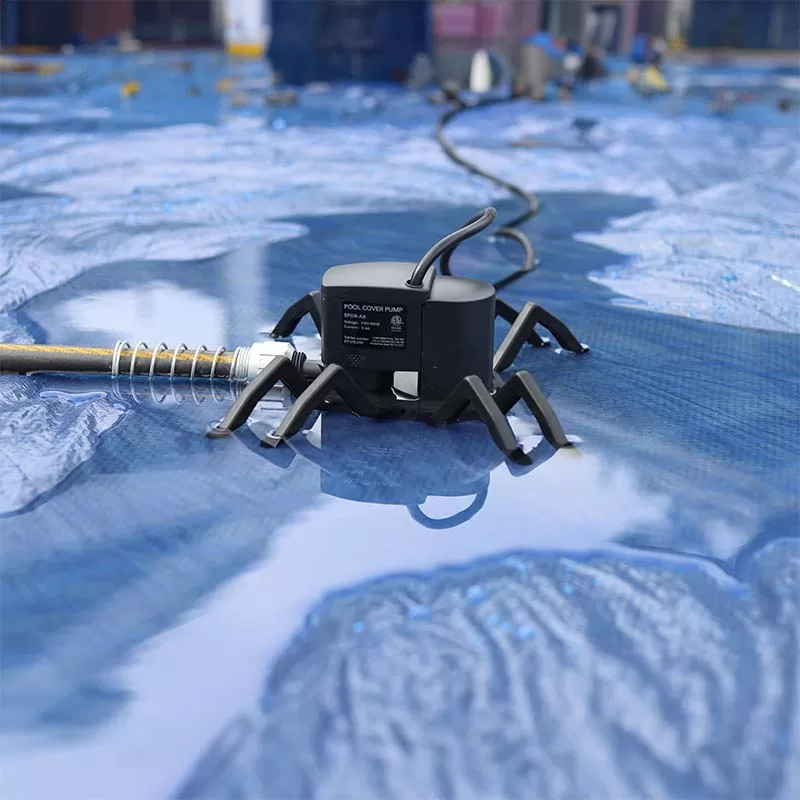
Inspect Pool Cover
Water Chemistry

It's important to monitor your pool's water chemistry throughout the winter season to stay ahead of any potential problems. Unbalanced pool water can lead to corrosion, scaling, staining, and of course, algae growth. And if you think these issues are a hassle to deal with during winter — warmer weather only makes them worse.
Before winterizing your pool, it is important to ensure that the water chemistry is properly balanced. Test the water and add the necessary winter chemicals according to your Closing Kit instructions. Closing your pool correctly sets you up for not only a successful winter, but an easier pool opening in spring.
Follow these tips to keep your winterized pool water balanced and avoid major problems:
Inspect and test the water monthly.
Once a month, pull back a corner of your winter or safety cover and inspect the state of the water. Check for visual algae growth, low water levels, and any other issues that need immediate attention. In addition to visually inspecting the water, use a test kit or strips to check basic chemistry and sanitizer levels. And lastly, use a pool brush or skimmer net to move and circulate the water, especially if you added any chemicals.
Use chemicals sparingly.
While you should still test your pool water during the winter, there's a limit to how much balancing you can do to winterized pool water. This is largely due to the fact that the water in your pool is mostly stagnant during winter and can't properly distribute chemicals without the help of a pool pump. And when chemicals can't disperse throughout the water, they will collect in one spot, and can cause surface discoloration and damage.
However, there are a few chemicals that you can make an exception for during winter! When necessary, add more chlorine to your pool to ensure the level stays between 1.0–4.0 ppm. To give your existing Free Chlorine a boost and ward off non-living organic contaminants, add a chlorine-free shock to the water. This product is relatively safe for winterized pools, as you won't have to worry about bleaching or pH-imbalanced "hot spots" harming your pool surfaces.
Enzymes and algaecides are two other chemicals you can use in a winterized pool to help promote healthy water at opening time. Using a winter algaecide is a great way to combat algae growth throughout the entire winter season, leading to a much easier pool opening. And Natural Chemistry's Pool Perfect is ideal for breaking down organics, improving the efficiency and longevity of your chlorine residual, and reducing scum lines on the pool surface.
Pool Equipment

One of the most important steps during the pool closing process is clearing water from the plumbing lines and equipment. Doing so ensures the pipes and costly equipment won't freeze and crack during the frosty season. And even if you're 100% certain you removed every drop of water from your pipes and equipment, it's crucial to inspect these areas throughout the winter, as winter plugs can sometimes fail. The presence of ice or freeze damage may mean the pool and equipment was not properly winterized, or it could just mean water was able to enter the plumbing after the pool was closed. This is why so many pool owners also like to add non-toxic pool antifreeze to the lines for extra peace of mind.
In addition to checking for freeze damage on and around the plumbing system, follow these tips to ensure your equipment stays in top shape during the winter.
- Make sure rodents have not nested in any pool equipment. Mice are notorious for taking up residence inside swimming pool heaters, particularly if they're still in operation.
- Keep the equipment drain plugs out until it's time to open the pool again next spring.
- Ensure the power breaker remains OFF, so the pump won’t turn on while the plumbing lines are empty. If it does, it can cavitate the pump, burn out the shaft seal, or melt other pump components.
Pool Cover
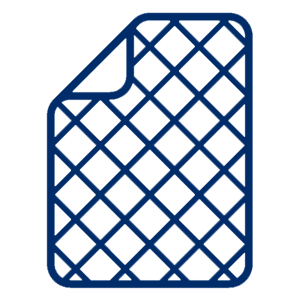
A properly maintained pool cover is essential for protecting your pool from the elements during winter. Safety covers and solid winter covers keep debris and sunlight from entering your pool, greatly reducing the risk of contamination and algae growth. Keeping your pool cover in great shape is vital to the health and cleanliness of your winterized pool.
Check out these helpful tips to help your cover withstand the harsh demands of winter:
Remove debris from cover.
Debris, melted snow, and rainwater can quickly accumulate on top of your pool cover during winter, especially if you have a solid cover. This weight can cause the cover to sag, rip, or even completely collapse into your pool. Removing debris and standing water from the cover as quickly as possible is key to avoiding cover catastrophes.
Use a soft-bristled pool brush to gently brush away any fallen leaves or twigs from the cover, and grab your skimmer net to scoop up small pieces. If rainfall or melting ice accumulate on the pool cover, use a cover pump to remove the excess water. But don't try to remove large piles of snow or frozen water. Wait for it to melt, then use the cover pump to drain the water.
Monitor cover straps or water bags.
It is important to properly secure the pool cover to protect the pool from weather elements. Inspect all water bags, safety straps, and anchors throughout the winter to ensure they're in good shape and not loose or damaged. Keep extra safety cover hardware, water bags, and other cover accessories on hand in case you need replacements.
Repair any cover damage quickly.
Inspect your pool cover throughout winter to ensure its integrity. Check for any tears, rips, or sagging areas, and repair any damage promptly to prevent major issues.
Proper winterized pool maintenance is crucial for preserving the integrity and longevity of your pool. Paying attention to your pool cover, equipment, and water chemistry is key to keeping your pool in optimal condition during winter.